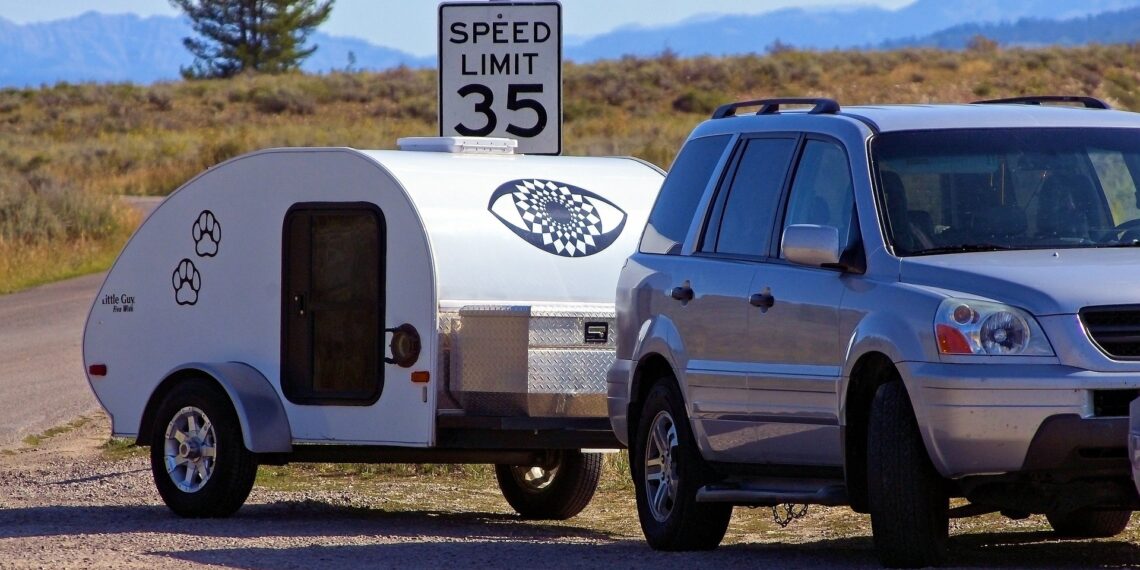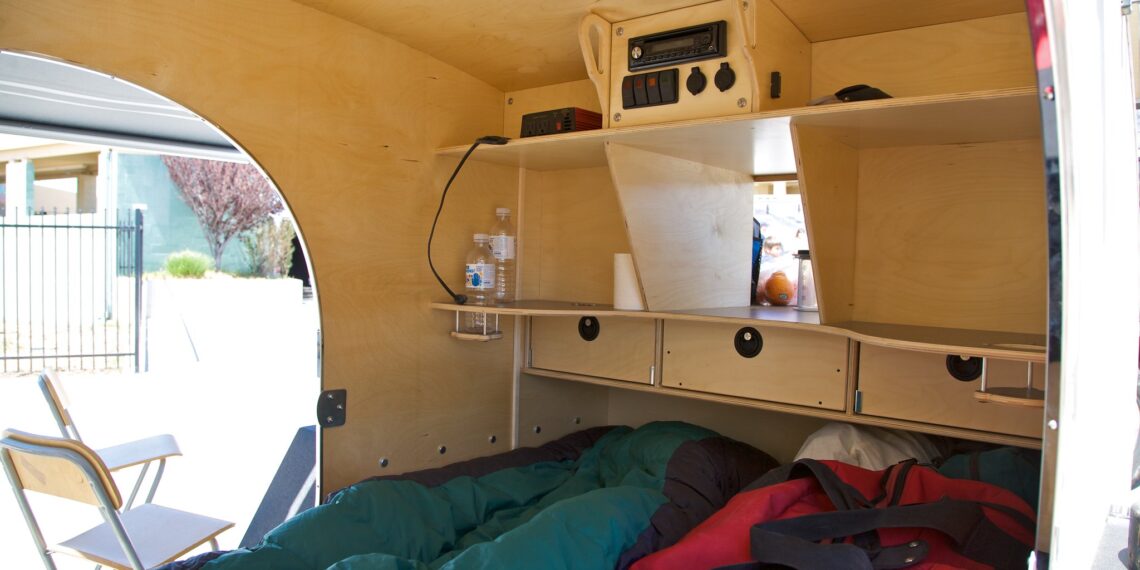Embarking on the journey to buy your first travel trailer can be both exciting and daunting. With numerous options, features, and factors to consider, it’s crucial to have a well-rounded understanding to make an informed decision. This comprehensive guide aims to help new RV enthusiasts navigate the process of buying a travel trailer in 2024, ensuring you choose the right one to suit your needs and lifestyle.
1. Determining Your Needs
Before diving into the world of travel trailers, it’s essential to determine what you need from your future home on wheels. Understanding your requirements will help narrow down the options and make the buying process smoother.

1.1 Assessing Travel Goals and Lifestyle
Consider how you plan to use your travel trailer. Are you looking for weekend getaways, extended road trips, or full-time living? Your travel goals will significantly influence the type of travel trailer that best suits you. For instance, weekend campers may prioritize different features compared to those planning to live in their trailer for months at a time.
1.2 Number of Occupants
The number of people who will regularly use the travel trailer is a critical factor. Ensure the trailer you choose has enough sleeping space, seating, and amenities to accommodate everyone comfortably. Families with children might need bunk beds or a separate sleeping area, while couples might prioritize a spacious living area.
1.3 Towing Capacity
Your vehicle’s towing capacity is another vital consideration. Different travel trailers vary significantly in weight, and it’s crucial to ensure your vehicle can safely tow the trailer you choose. Check your vehicle’s manual for its towing limits and compare it with the trailer’s Gross Vehicle Weight Rating (GVWR).
1.4 Desired Features and Amenities
Make a list of must-have features and amenities. Common considerations include kitchen appliances, bathroom facilities, heating and cooling systems, storage space, and entertainment options. Prioritizing these features will help you narrow down your choices.
2. Setting a Budget
Setting a realistic budget is a fundamental step in the process of buying a travel trailer. Your budget will guide your choices and ensure you don’t overextend financially.

2.1 Initial Purchase Cost
Travel trailers come in a wide range of prices, from economical options to luxury models. Determine how much you are willing to spend on the initial purchase. Remember that a higher price tag often comes with more features and better build quality, but there are also many affordable options that provide great value.
2.2 Financing Options
If you plan to finance your travel trailer, explore different financing options. Many dealers offer financing plans, and you can also consider personal loans or RV loans from banks or credit unions. Be sure to compare interest rates and terms to find the best deal.
2.3 Additional Costs
Factor in additional costs such as taxes, registration, insurance, and any necessary upgrades or modifications. It’s also wise to budget for ongoing expenses like maintenance, storage, and campsite fees.
3. Researching Different Types of Travel Trailers
Understanding the various types of travel trailers available will help you make an informed decision. Each type has its own set of advantages and is suited to different needs and preferences.

3.1 Conventional Travel Trailers
Conventional travel trailers, also known simply as travel trailers, come in a variety of sizes and floor plans. They are typically towed by a bumper hitch and offer a wide range of features and amenities. These trailers are a popular choice for their versatility and affordability.
3.2 Fifth-Wheel Trailers
Fifth-wheel trailers are designed to be towed by pickup trucks with a special hitch mounted in the truck bed. They tend to be larger and offer more living space, making them a great option for families or those planning extended trips. The unique hitch design provides greater stability while towing.
3.3 Toy Haulers
Toy haulers are travel trailers that feature a built-in garage area, perfect for transporting motorcycles, ATVs, or other recreational vehicles. This type is ideal for adventure enthusiasts who want to bring their toys along on their travels. The garage area can often be converted into additional living or sleeping space.
3.4 Teardrop Trailers
Teardrop trailers are compact and lightweight, making them easy to tow with smaller vehicles. They typically feature a simple sleeping area and a basic kitchen setup. Teardrop trailers are perfect for solo travelers or couples who prioritize simplicity and ease of use.
3.5 Pop-Up Campers
Pop-up campers, also known as folding trailers, are lightweight and compact, making them easy to store and tow. They feature collapsible sides that can be expanded when parked, providing more living space. Pop-up campers are a great entry-level option for those new to RVing.
3.6 Travel Trailer Features to Consider
When comparing different types of travel trailers, pay attention to key features such as floor plan, construction quality, insulation, and off-grid capabilities. Consider how these features align with your needs and travel goals.
4. Inspecting a Used Travel Trailer
Buying a used travel trailer can be a cost-effective option, but it’s important to conduct a thorough inspection to ensure you are getting a reliable vehicle.

4.1 Exterior Inspection
Start with the exterior of the trailer. Check for signs of damage, such as dents, rust, or cracks. Inspect the roof for any leaks or water damage. Ensure all doors, windows, and storage compartments open and close properly.
4.2 Interior Inspection
Inside the trailer, look for signs of water damage, mold, or mildew. Check the condition of the flooring, walls, and ceiling. Test all appliances and systems, including the electrical, plumbing, heating, and cooling systems. Make sure the layout and features meet your needs.
4.3 Mechanical and Structural Components
Inspect the trailer’s chassis, axles, and tires. Look for any signs of wear or damage. Ensure the brakes and lights are functioning correctly. If possible, take the trailer for a test tow to evaluate its stability and performance on the road.
4.4 Professional Inspection
Consider hiring a professional RV inspector to conduct a detailed examination of the used travel trailer. An expert can identify potential issues that you might overlook and provide an unbiased assessment of the trailer’s condition.
5. Negotiating the Price
Negotiating the price of a travel trailer is an important step that can save you money and ensure you get the best deal.

5.1 Research Market Prices
Before entering negotiations, research the market prices for similar travel trailers. Compare prices from different dealers and private sellers to get an idea of the fair market value. This information will give you a strong bargaining position.
5.2 Prepare to Negotiate
When negotiating, be prepared to walk away if the price isn’t right. Set a maximum price you are willing to pay and stick to it. Be polite but firm in your negotiations, and don’t be afraid to ask for additional discounts or incentives.
5.3 Trade-Ins and Incentives
If you have a vehicle or RV to trade in, factor this into the negotiation. Many dealers offer trade-in deals that can reduce the overall cost of the travel trailer. Additionally, inquire about any current promotions or incentives that could further lower the price.
6. Understanding Maintenance and Storage
Proper maintenance and storage are crucial to extending the lifespan of your travel trailer and ensuring it remains in good condition.

6.1 Regular Maintenance
Regular maintenance tasks include checking and maintaining the roof, seals, and seams to prevent leaks. Inspect and service the tires, brakes, and bearings. Regularly clean and sanitize the water system. Test and maintain the electrical and propane systems. Keep the interior clean and address any repairs promptly.
6.2 Seasonal Maintenance
Perform seasonal maintenance tasks such as winterizing your trailer to protect it from freezing temperatures. This involves draining the water system, adding antifreeze, and sealing any openings. In the spring, de-winterize the trailer and perform a thorough inspection and cleaning.
6.3 Storage Solutions
Proper storage is essential to protect your travel trailer when it’s not in use. If possible, store it in a covered or indoor storage facility to shield it from the elements. If outdoor storage is your only option, invest in a high-quality cover to protect the trailer from sun, rain, and snow. Make sure the trailer is secure and all openings are sealed to prevent pests from entering.
Conclusion
Buying your first travel trailer in 2024 is an exciting adventure that opens up a world of travel possibilities. By carefully determining your needs, setting a realistic budget, researching different types of travel trailers, inspecting used options, negotiating effectively, and understanding maintenance and storage requirements, you can make a confident and informed purchase. Remember to prioritize the features and amenities that matter most to you, and don’t hesitate to seek professional advice when needed. With the right travel trailer, you’ll be ready to embark on countless memorable journeys and create lasting memories on the road.






































